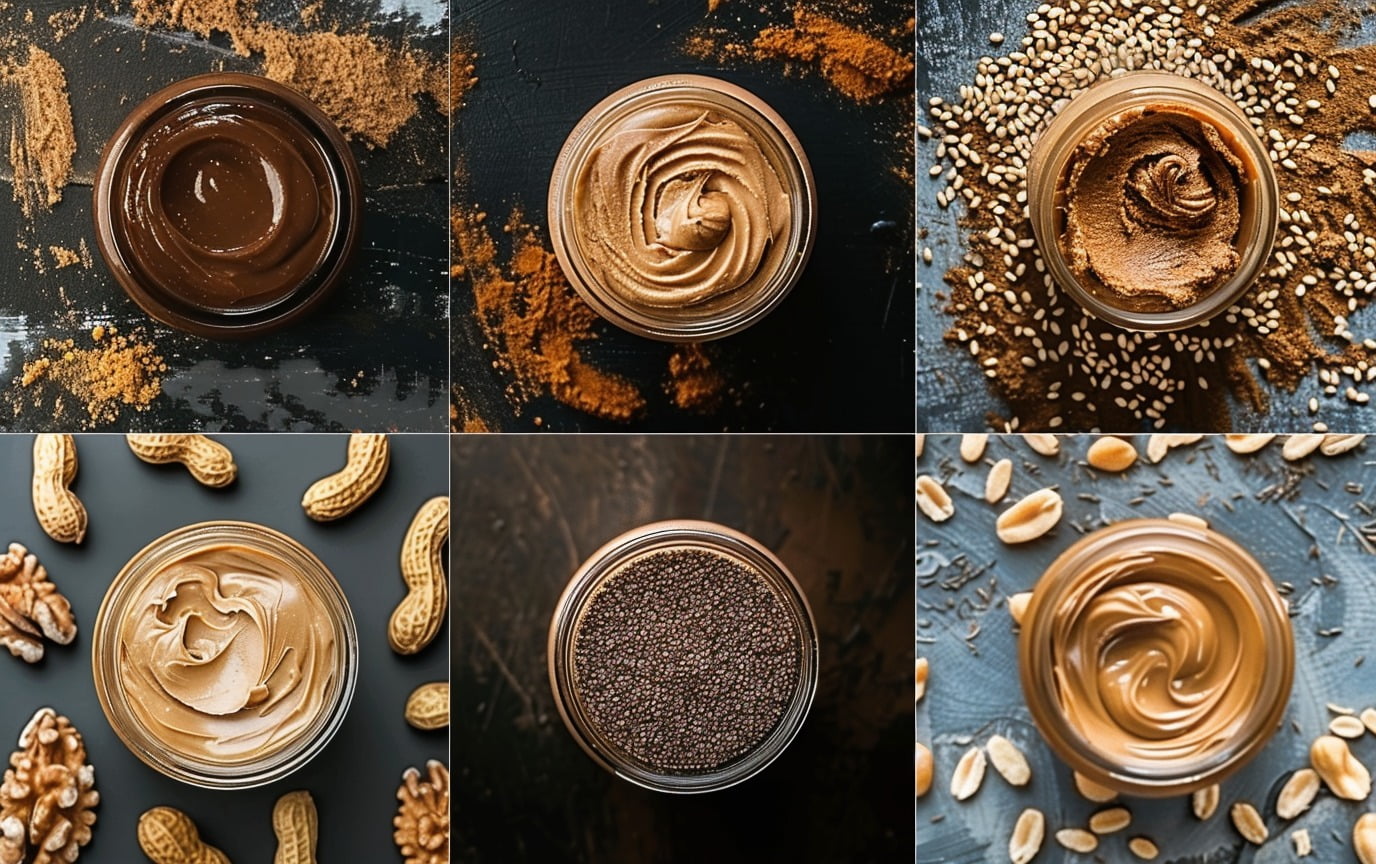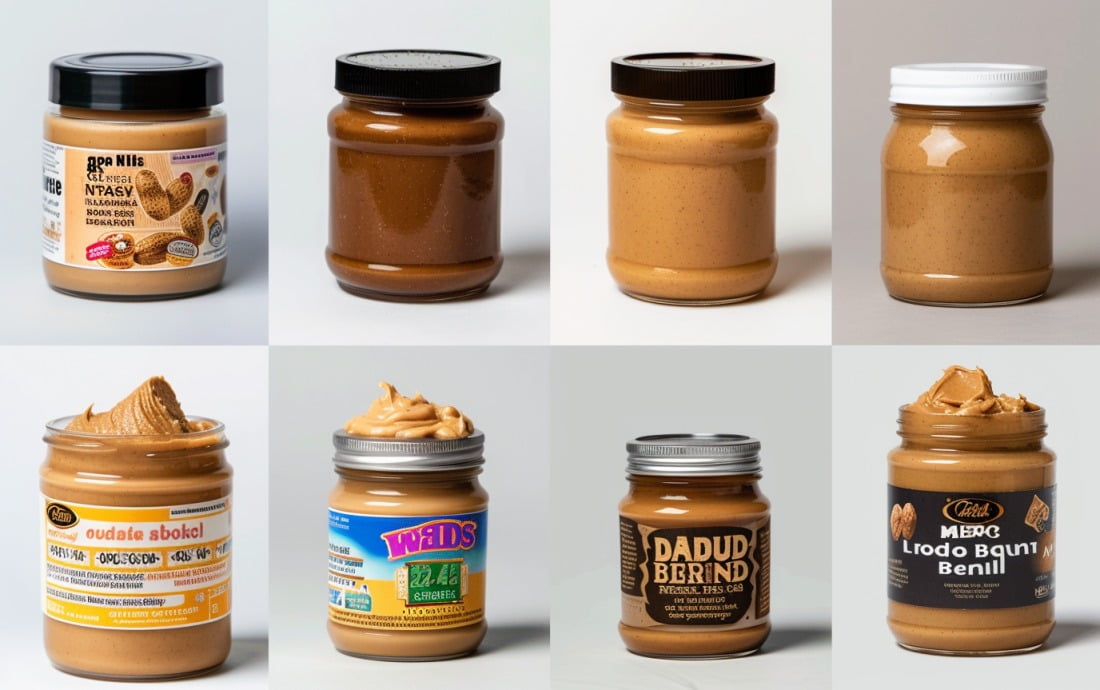Peanut butter isn’t just a human indulgence; it’s a canine favorite too! It’s that perfect blend of creamy (or crunchy) goodness that most dogs go absolutely nuts for. But why is it such a hit with our furry friends?
- Flavor Explosion: Let’s be honest, peanut butter tastes amazing! Dogs agree. The rich, nutty flavor is a drool-worthy treat for most pups.
- Protein Power: Peanut butter is packed with protein, an essential nutrient for dogs’ muscle growth and overall health.
- Healthy Fats: Good fats, like those found in peanut butter, provide dogs with energy, support brain function, and keep their coats shiny.
- Vitamin E: This antioxidant powerhouse helps protect dogs’ cells from damage and supports a strong immune system.
- Niacin (Vitamin B3): Important for dogs’ metabolism and energy production.
- Mental Stimulation: Peanut butter-filled toys (like Kongs) can keep dogs entertained and mentally engaged for hours.
- Medication Delivery: The sticky texture of peanut butter makes it a great way to hide pills or supplements that your dog might otherwise turn their nose up at.

Choosing the Best Peanut Butter for Your Pup: A Buyer’s Guide
With so many peanut butter brands lining the shelves, finding the perfect jar for your furry friend can feel overwhelming. But don’t worry, I’ve got your back! Here’s what to look for:
The Must-Haves:
- Xylitol-Free: This is non-negotiable! Xylitol is extremely dangerous for dogs, so double-check the ingredient list.
- Unsalted: Too much salt isn’t good for dogs. Opt for unsalted peanut butter or varieties with minimal sodium.
- Minimal Ingredients: The simpler the better! Look for peanut butter with peanuts and maybe a touch of oil as the only ingredients.
- No Added Sugar: Avoid peanut butter with added sugars or sweeteners.
Bonus Points:
- Organic: If you’re looking for the ultimate in natural goodness, choose organic peanut butter.
- Palm Oil-Free: Palm oil production can have negative environmental impacts, so consider palm oil-free options if sustainability is important to you.
Ingredient Red Flags:
- Xylitol
- Hydrogenated Oils (Trans Fats)
- Artificial Sweeteners
- High Fructose Corn Syrup
- Molasses
Top 10 Peanut Butters for Dogs: The Ultimate Taste Test
Get those taste buds ready! We’ve rounded up the 10 best peanut butters that are sure to make your dog’s tail wag:
| Peanut Butter Brand | Type | Key Features | Ideal For |
| Bark Bistro Buddy Budder | Raw | Single-ingredient, human-grade, no added salt or sugar, USDA-certified organic |
Picky eaters, dogs with allergies
|
| 365 by Whole Foods Market | Creamy/Chunky | No salt, no sugar, no hydrogenated oils, affordable |
Budget-conscious pet parents
|
| Spread the Love Naked | Organic | Single-ingredient, USDA-certified organic, no added salt or sugar, available in creamy and chunky |
Health-conscious pet parents, dogs with allergies
|
| Poochie Peanut Butter | Creamy | Formulated for dogs, added vitamins and minerals, flaxseed and parsley for digestion |
Puppies, senior dogs
|
| Kong Stuff’n Easy Treat | Squeezable | Easy to fill toys, no xylitol, made with real roasted peanuts |
Dogs who love puzzle toys
|
| Green Coast Pet Pawnut Butter | Creamy/Chunky | Omega-3s, flaxseeds, no preservatives, hydrogenated oils, or additives like corn, salt, sugar, wheat, and soy |
Dogs needing joint support or extra omegas
|
| Nature’s Logic Canine Peanut Butter | Creamy | Made with high-quality ingredients, no artificial flavors or preservatives |
Dogs with sensitive stomachs
|
| Zuke’s Mini Naturals | Training Treats | Bite-sized, perfect for training, limited ingredients, no xylitol |
Training rewards
|
| Teddie All Natural | Creamy/Chunky | No added salt or sugar, available in both smooth and chunky varieties |
Peanut butter purists
|
| Crazy Richard’s | Creamy/Chunky | No added salt or sugar, available in creamy, crunchy, and no-stir varieties |
Variety lovers, budget-friendly option
|
A Note on Serving Size:
Peanut butter is high in calories and fat, so it’s important to offer it in moderation. A general rule of thumb is:
- Small dogs: 1/2 teaspoon per day
- Medium dogs: 1 teaspoon per day
- Large dogs: 2 teaspoons per day
Always adjust the amount based on your dog’s size, activity level, and overall diet.

Creative Ways to Serve Peanut Butter to Your Dog
Move over, boring bowl! Let’s get creative with peanut butter and give your pup a treat they won’t forget:
- The Classic Kong: Stuff a Kong toy with peanut butter and freeze it for a long-lasting challenge.
- Lickable Mats: Spread peanut butter on a lickable mat to keep your dog occupied and mentally stimulated.
- Frozen Peanut Butter Treats: Mix peanut butter with plain yogurt, pumpkin puree, or mashed banana, pour into ice cube trays or molds, and freeze for a refreshing snack.
- Peanut Butter Puzzle Toys: Fill puzzle toys with peanut butter to make mealtime more engaging and rewarding.
- Peanut Butter and Banana Bites: Combine mashed banana and peanut butter, roll into small balls, and freeze for a healthy treat.
- Peanut Butter Banana Popsicles: Blend peanut butter, banana, and a little water. Pour into ice pop molds and freeze.
- Peanut Butter Dipping Sauce: Pair with apple slices or baby carrots for a healthy and delicious snack.
- Homemade Peanut Butter Dog Treats: Find dog-friendly recipes online for tasty cookies, biscuits, or frozen treats.
- Medication Magic: Use peanut butter to disguise pills or supplements.
- Remember: Always supervise your dog when they’re enjoying peanut butter, especially if it’s their first time trying it.
Peanut Butter Safety Tips
While peanut butter can be a healthy and fun treat for dogs, it’s important to follow these safety guidelines:
- Xylitol-Free: This cannot be stressed enough. Xylitol is toxic to dogs and can be fatal.
- Moderation: Peanut butter is high in calories and fat, so offer it in moderation as a treat, not a meal replacement.
- Allergies: Some dogs may be allergic to peanuts. If your dog shows any signs of an allergic reaction (itching, swelling, vomiting, diarrhea), stop feeding them peanut butter and consult your veterinarian.
- Clean Up: Peanut butter can be messy! Wipe your dog’s face and paws after they’ve enjoyed their treat.
By following these simple tips, you can ensure that your dog enjoys peanut butter safely and happily.
Peanut Butter: More Than Just a Tasty Treat for Dogs
Beyond the deliciousness and entertainment factor, peanut butter offers some surprising benefits for our canine companions:
Health Benefits:
- Weight Management: For dogs who need to shed a few pounds, peanut butter can be used in moderation as a low-calorie treat to replace higher-calorie options.
- Skin and Coat Health: The healthy fats in peanut butter contribute to a shiny coat and can help alleviate dry skin.
- Muscle Growth and Repair: The protein content supports muscle development and repair, especially important for active dogs.
- Digestive Health: Some peanut butters contain added fiber, which can aid in digestion and promote regular bowel movements.
- Heart Health: Peanut butter contains niacin, which can help improve cholesterol levels and support cardiovascular health in dogs.
Training Tool:
- Positive Reinforcement: Peanut butter is a high-value reward that most dogs adore, making it a powerful tool for positive reinforcement training.
- Distraction: The enticing aroma and taste of peanut butter can help distract dogs during vet visits, grooming sessions, or nail trims.
- Medication Administration: As mentioned earlier, peanut butter is excellent for hiding pills and making medication time a little less stressful.
Emotional Well-being:
- Stress Relief: Licking peanut butter from a toy or mat can have a calming effect on dogs, reducing anxiety and stress.
- Bonding: Sharing peanut butter treats with your dog can strengthen your bond and create positive associations.
Peanut Butter Precautions:
- Allergies: While rare, some dogs may have peanut allergies. Monitor your dog for any signs of allergic reactions like itching, swelling, or digestive upset.
- Pancreatitis: Dogs with a history of pancreatitis or those prone to the condition should avoid peanut butter due to its high-fat content.
- Diabetes: If your dog has diabetes, consult your veterinarian before giving them peanut butter, as it may affect blood sugar levels.
By being mindful of these precautions and using peanut butter in moderation, you can safely incorporate this versatile treat into your dog’s life and reap its many benefits.
While peanut butter reigns supreme as a canine favorite, it’s not the only human food that sparks curiosity amongst our furry friends. One common question that many dog owners ask is, “Can dogs drink milk?“
Conclusion
In the world of dog treats, peanut butter reigns supreme! It’s not just a tasty snack; it’s a versatile tool for training, enrichment, and even health support. From the classic Kong stuffing to creative recipes and frozen delights, the possibilities are endless.
Remember, the key is moderation and choosing the right type of peanut butter for your furry friend. Always opt for xylitol-free, unsalted varieties with minimal ingredients.
So go ahead, spread the peanut butter love and watch your dog’s tail wag with joy! Whether you’re using it as a training reward, a boredom buster, or simply a tasty treat, peanut butter is sure to become a staple in your dog’s happy and healthy life.
FAQs
Can all dogs eat peanut butter?
Most dogs can safely enjoy peanut butter, but it’s important to be mindful of potential allergies and underlying health conditions like pancreatitis or diabetes. Always introduce peanut butter gradually and monitor your dog for any adverse reactions.
How much peanut butter can I give my dog?
Peanut butter should be given in moderation as a treat, not a meal replacement. A good rule of thumb is:
- Small dogs: 1/2 teaspoon per day
- Medium dogs: 1 teaspoon per day
- Large dogs: 2 teaspoons per day
Adjust the amount based on your dog’s size, activity level, and overall diet.
Can puppies eat peanut butter?
Yes, puppies can enjoy peanut butter as long as it’s xylitol-free and given in moderation. It’s a great way to introduce them to new flavors and textures.
Can peanut butter help my dog gain weight?
While peanut butter is high in calories and fat, it’s not a balanced source of nutrition. If you’re concerned about your dog’s weight, consult your veterinarian for guidance on a healthy weight-gain plan.
Is homemade peanut butter better for dogs?
Homemade peanut butter can be a good option as long as you avoid adding salt, sugar, or other ingredients that could be harmful to dogs. Be sure to use xylitol-free peanuts and avoid any recipes that include chocolate or other toxic ingredients.

Healthy dogs mean happy dogs, and that makes me happy! I’m here to share all the tips for keeping your best furry friend in top shape, from puppyhood to their golden years.

